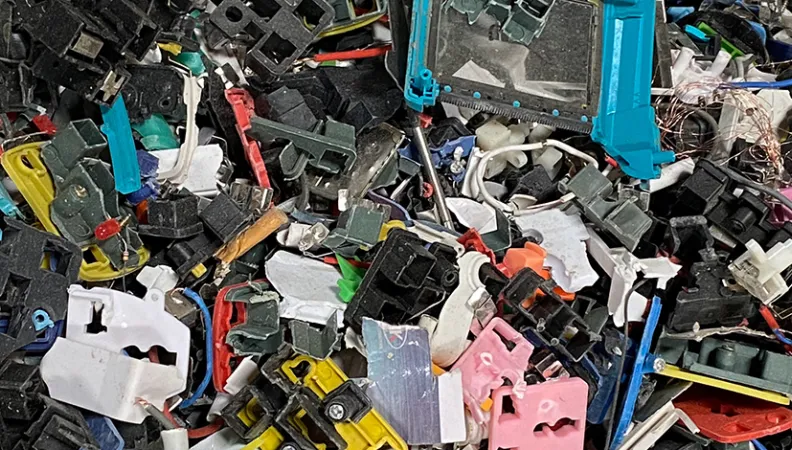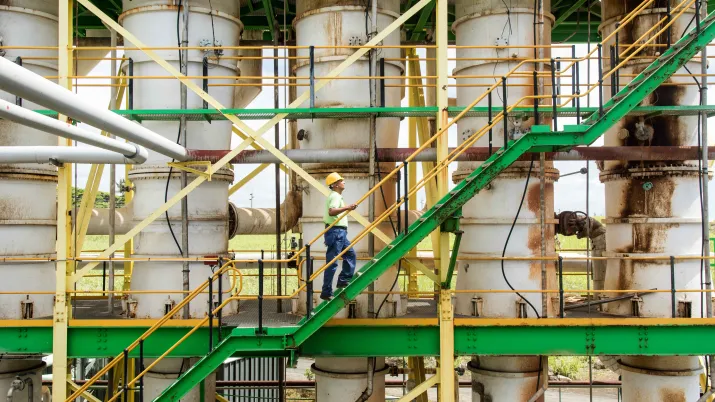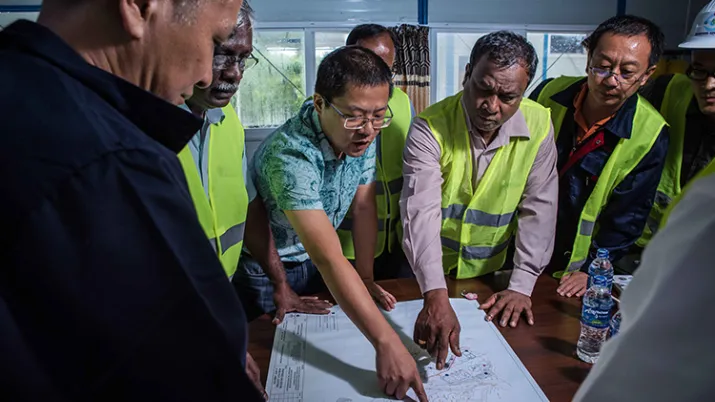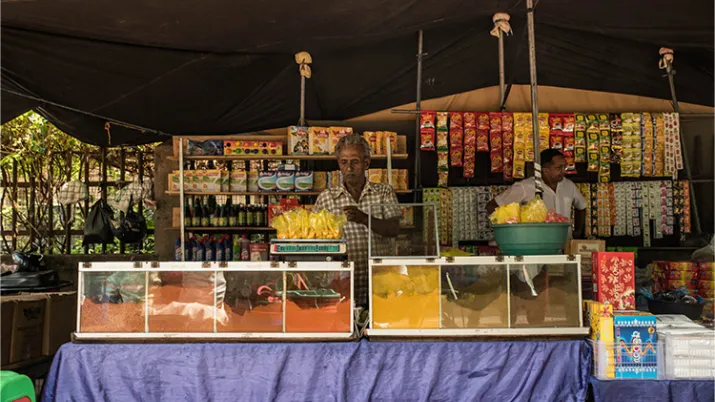Share the page
SWITCH to Circular Economy in Eastern and Southern Africa
Project
Published on

-
Project start date
-
Status
Ongoing
-
Project end date
-
-
Financing amount (Euro)
-
42.15m
-
Country and region
-
Africa, South Africa, Angola, Botswana, Burundi, Ethiopia, Kenya, Malawi, Mozambique, Namibia, Uganda, Rwanda, Tanzania, Zambia
-
Funders
-
Partners
The program promotes a transition towards a circular economy in Eastern & Southern Africa, focusing on policy frameworks, MSMEs support and financing in packaging/plastics and e-waste value chains.
Circular economy, an asset to reduce waste
Currently, 90% of biodiversity loss and half of greenhouse gas emissions come from extracting and processing materials. Africa’s urban population is growing rapidly, increasing waste, especially plastic and electronic waste (e-waste). Without action, plastic waste in Africa could double by 2040, and uncontrolled e-waste handling will continue to cause pollution and health risks.
A circular economy—where materials are reduced, reused, repaired, remanufactured or recycled—reduces dependence on raw materials, cuts waste, and supports climate goals under the EU Green Deal.
SWITCH-2-CE: Fostering an inclusive transition to circular economy in Eastern and Southern Africa
In this context, the project SWITCH to Circular Economy in Eastern and Southern Africa fosters an inclusive transition towards a circular economy, focusing on policy frameworks, MSMEs support and financing in packaging/plastics and e-waste value chains.
More specifically, the SWITCH-2-CE project aims to:
- Establish an enabling policy framework for circular economy across Eastern and Southern Africa;
- Enhance the participation of formal and informal workers and SMEs, including women and youth, in circular economy models;
- Improve access to and use of financing by circular economy businesses.
Three areas of operation
Promoting an enabling policy framework for circular economy
For a circular economy to succeed, national and regional governments need enabling policies, rules and regulations. Therefore, the project activities aim to:
- Produce and disseminate knowledge: Develop and disseminate research, best practices, and lessons learned on circular economy policies.
- Raise awareness: Make sure national and regional policymakers engage with the issue of circular economy.
- Facilitate policy dialogues: Bring policymakers together to discuss and coordinate circular economy strategies.
- Provide technical support: Support national and regional policymakers in formulating circular economy policy measures or policy-making mechanisms.
Training Businesses and Workers
To make circular economy solutions successful, there’s a need for skilled workers and business owners. The project activities include:
- Working with universities and training institutions to integrate circular economy skills into education and curricula.
- Providing targeted training for SMEs, women, and youth to create employment opportunities in circular industries.
- Improving opportunities and working conditions for informal workers in waste management, helping them transition to safer and more stable roles.
Making Financing and Support Accessible for Circular Businesses
Many start-ups and small businesses struggle to get funding and technical support for circular economy solutions. That is why the project activities include:
- Creating a Matching Grant Facility to provide financial support at different growth stages—from start-ups to scaling companies.
- Offering technical assistance to circular economy businesses to improve business models, investment readiness, and scaling potential.
- Strengthening the ecosystem by supporting Business Development Services (BDS) providers and financial institutions to better serve circular businesses.
- Supporting financial institutions in enhancing their capacity, expertise, and product offerings related to the circular economy.
Main targets
The actions implemented within the framework of the SWITCH-2-CE project will benefit various institutions and partners:
- National and regional policymakers, especially the Common Market for Eastern and Southern Africa (COMESA), to create an enabling policy framework for Circular Economy in the region.
- Formal and informal workers, SMEs, women, and youth to enhance their participation in circular economy models.
- Circular businesses (start-ups, SMEs, regional firms, joint ventures) to strengthen their financial and technical capacities
- Financial institutions (Venture capital, impact funds, banks, etc.) to improve access and use of finance mechanisms for circular businesses
- Business Development Service (BDS) providers – To support circular businesses in the two priority value chains (plastics/packaging & e-waste).
Similar Projects
In the News
In Southeast Asia, providing long-term support to the circular economy, health and security
Southeast Asia is one of the priority regions for France. As part of the 2022 Indo-Pacific strategy, Expertise France is addressing the multiple challenges encountered in the fields of security, susta...
Published on October 6, 2025






